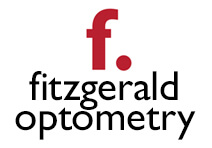
Macular degeneration is a leading cause of vision loss, particularly in Australians over the age of 50. This condition affects the macula, the central part of the retina responsible for sharp, detailed vision. As macular degeneration progresses, it can make reading, recognising faces, and seeing fine details more difficult.
At Fitzgerald Optometry, we provide advanced macular degeneration screenings to detect changes early and recommend management strategies to help preserve your vision.
What Is Age-Related Macular Degeneration (AMD)?
Macular degeneration occurs when the cells in the macula deteriorate, leading to central vision loss. It does not cause complete blindness, but it can severely impact daily tasks that require detailed vision.
There are two main types of macular degeneration:
1. Dry Macular Degeneration (Most Common Form – 90% of Cases)
- Gradual thinning of the macula over time
- Slow and progressive central vision loss
- Drusen deposits (tiny yellow spots) form under the retina
- No pain or early noticeable symptoms
2. Wet Macular Degeneration (Less Common but More Severe)
- Abnormal blood vessels grow under the retina, leaking fluid and blood
- Rapid and severe vision loss if left untreated
- Straight lines may appear distorted or wavy
- Requires urgent treatment to prevent further damage
Dry AMD can progress into wet AMD, making regular eye exams essential for early detection.
Who Is at Risk for Macular Degeneration?
Certain factors increase the risk of developing AMD, including:
- Age: More common in individuals over 50
- Family History: A genetic link increases the likelihood of developing AMD
- Smoking: Doubles the risk of macular degeneration
- Sun Exposure: Prolonged UV exposure may contribute to macular damage
- Poor Diet: A diet low in antioxidants and omega-3 fatty acids may increase risk
- High Blood Pressure: Can contribute to poor circulation in the retina
If you have one or more of these risk factors, scheduling regular eye exams is essential.
Symptoms of Macular Degeneration
In its early stages, macular degeneration may not cause noticeable symptoms. However, as the condition progresses, signs may include:
- Blurry or distorted central vision
- Difficulty reading, driving, or recognizing faces
- Dark or blank spots in central vision
- Colors appearing faded or less vibrant
- Straight lines appearing wavy or distorted (a key symptom of wet AMD)
If you experience any of these symptoms, schedule an urgent eye exam at Fitzgerald Optometry.
Macular Degeneration Testing at Fitzgerald Optometry
We use advanced diagnostic technology to detect AMD in its earliest stages, before significant vision loss occurs.
Our macular degeneration tests include:
- Optical Coherence Tomography (OCT): Provides detailed cross-sectional images of the macula to detect early signs of damage.
- Retinal Imaging: Captures high-resolution images to monitor changes in the retina over time.
- Amsler Grid Test: A simple at-home test used to detect distortion in vision.
- Visual Acuity Testing: Measures central vision clarity to assess changes over time.
Early detection allows us to monitor changes and recommend the best management strategies to protect your vision.
How Is Macular Degeneration Treated?
While there is no cure for macular degeneration, treatment options are available to slow progression and protect remaining vision.
1. Lifestyle Changes & Nutritional Support (Recommended for Dry AMD)
A diet rich in leafy greens, fish, and antioxidants supports macular health.
- AREDS2 Supplements (Vitamins C, E, Zinc, Copper, Lutein, Zeaxanthin) may slow disease progression.
- Quit Smoking – Smoking doubles the risk of developing AMD.
- Wear Sunglasses – Protects eyes from harmful UV rays.
2. Anti-VEGF Injections (Recommended for Wet AMD)
- Reduces abnormal blood vessel growth under the retina.
- Helps slow vision loss and, in some cases, improves vision.
- Injections are administered every few weeks by an ophthalmologist.
3. Low Vision Aids
- Magnifiers and specialized reading glasses can improve day-to-day visual function.
- Electronic magnification devices can enhance contrast and visibility.
At Fitzgerald Optometry, we work closely with ophthalmologists for advanced treatments like anti-VEGF therapy, ensuring you receive the best care for your condition.
Protecting Your Vision: Tips for Managing Macular Degeneration
If you have been diagnosed with macular degeneration or are at risk, these steps can help maintain eye health:
- Have Regular Eye Exams: Early detection allows for better management.
- Use the Amsler Grid at Home: Monitor your central vision for any changes.
- Increase Contrast in Your Environment: Use brighter lights and high-contrast settings on devices.
- Maintain a Healthy Diet: Eat foods rich in omega-3s, lutein, and zeaxanthin.
- Stay Active: Exercise promotes healthy blood flow to the retina.
By making these adjustments, you can reduce the impact of macular degeneration on your daily life.
Book a Macular Degeneration Screening
If you’re over 50 or have risk factors for macular degeneration, early detection is key. Schedule a comprehensive eye exam at Fitzgerald Optometry to protect your vision and learn more about macular degeneration management.
Contact us today to book your appointment.

